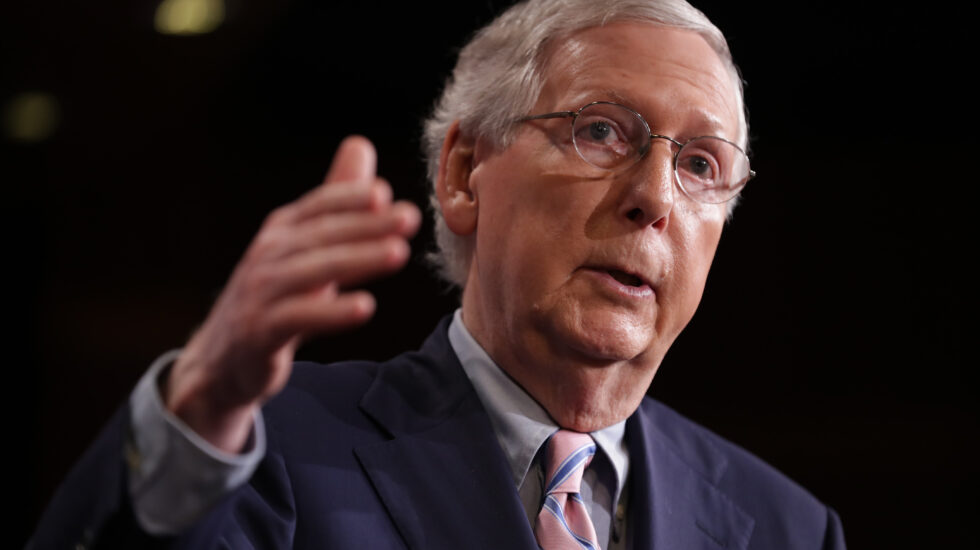In his mostly subdued testimony in Congress on Wednesday, former special counsel Robert Mueller was notably forceful about one thing: not only did the Russians meddle in the 2016 presidential election, they’re still at it — and must be stopped.
Moscow’s threat to democracy, he said, “deserves the attention of every American.”
But since Mueller spoke those words, Senate Republicans have twice blocked bills aimed at bolstering U.S. election security.
Sen. Mitch McConnell (R-KY), the majority leader, on Thursday called a House-passed legislative package of three election-security bills “so partisan it received just one Republican vote.”
That followed the action Wednesday of Sen. Cindy Hyde-Smith (R-MS), who “objected” to the three bills on Wednesday, “in keeping with longstanding GOP arguments that Congress has already responded to election security needs for the upcoming election,” CNN reports.
Senate Democrats had sought to speed the package through Congress by asking for unanimous consent — but it only takes one senator to block such consent, as Hyde-Smith did.
The bills would authorize spending $775 million to bolster voting system security in the states, would “require campaigns to alert the FBI and Federal Election Commission about foreign offers of assistance and … would let the Senate sergeant-at-arms offer voluntary cyber assistance for personal devices and accounts of senators and staff,” reports The Hill.
On Twitter, Senate Minority Leader Chuck Schumer (D-NY) fumed that McConnell and other Senate Republicans have “buried commonsense election security bills in their legislative graveyard.” He “called [Senate] inaction a disgrace and is pledging to keep putting forward requests for votes on bills,” the Associated Press reports.
New York magazine quotes Senate Intelligence Committee vice-chairman Mark Warner (D-VA) as saying Mueller’s testimony “should serve as a warning to every member of this body about what could happen in 2020, literally in our next elections.”
President Trump apparently has never been fully briefed on Russia’s election intrusions, as have members of Congress.
And CNN notes that “In public statements, Trump has waffled on whether he’s accepted the U.S. intelligence community’s broadly accepted findings that Russia launched a multi-pronged interference campaign” before the 2016 election.



